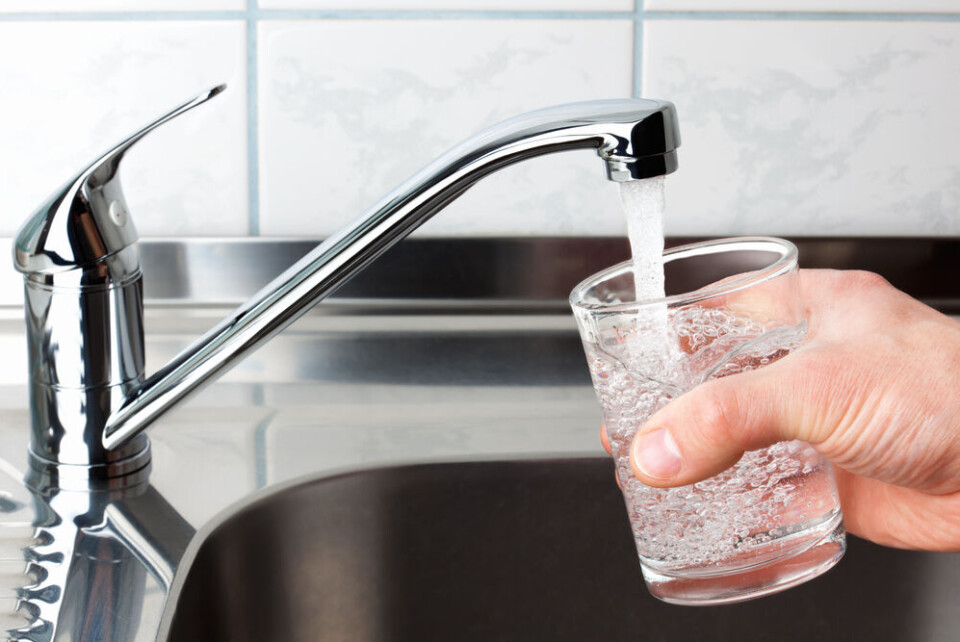-
France’s wild garlic season is here – but foragers should beware toxic lookalikes
Spring brings the fragrant plant to woodlands nationwide. We explain what to look out for
-
Record river levels, more evacuations: Latest on flooding in south-west France
Alerts are in place across five departments and residents in some areas are told to stay home
-
French second-home visa issues raised in House of Lords
British people experience an "expensive and bureaucratic process" to continue living in France
French town to become first in Europe to recycle used water
Sables-d’Olonne in Vendée is to take waste water, clean it and redirect it back into the drinking water system

Used household water in a commune in west France is set to be recycled and reused in the drinking water supply, a first for Europe.
The commune of Sables-d’Olonne (Vendée, Pays de la Loire) is aiming to become an environmental pioneer in Europe with the system, which has been created and spearheaded by the departmental drinking water management group Vendée Eau.
By 2023, the authority will launch an experiment to recycle used water, dubbed the ‘Jourdain’ project.
At the moment, drinking water is used by inhabitants (from taps, bathrooms etc in homes), and then cleaned before being redirected back into the sea.
The Jourdain project will instead take this used water and pass it through a vegetation area to clean it, before being reintroduced back into the water system to be cleaned and become drinking water once again.
Read more:‘You have to change your lifestyle’: tips to cut water usage in France
A first for Europe
Currently, nowhere in Europe recycles used water like this to redirect it back into the drinking water supply (although Australia and Israel have been using similar systems for decades).
Jérôme Bortoli, director of Vendée Eau, told France 3: “All the micropollutants, drug residues or bacteria that we can imagine will be trapped. So we will have water that is of better quality than that of the river into which we usually discharge this water.”
Other solutions exist to use water from other sources (such as desalination of seawater), but Vendée Eau has said that its system will be cheaper and more eco-friendly.
Yannick Moreau, president of the Sables-d'Olonne Agglomeration, said: "We are studying the desalination of seawater but with the current state of technology, it consumes a lot of energy. We are not going to create a nuclear power station on the seashore to desalinate seawater.”
Les Sables d’Olonne à l’honneur sur le 19/20 de #France3.
— Yannick MOREAU (@YannickMOREAU) July 7, 2022
Coup de projecteur sur 1 projet inédit en Europe piloté par #Vendee #Eau : la transformation de l’eau grise en or bleu, ou le recyclage ultime pour refaire de l’eau potable à partir de l’eau usée.#Reut #Jourdain #1/2 pic.twitter.com/plTDgGkzDZ
Drought issues
Sables-d’Olonne is moving to implement the Jourdain system quickly, as it has suffered in the recent drought conditions.
Read more:Drought map: See what water restrictions apply in your department
The Jaunay reservoir in the area is the only supply of drinking water for 25% of inhabitants, and there is no water level table there. More than 90% of the water is at surface level only, meaning that the continued droughts have called the supply into question.
Mr Bortoli said: “Our reserves are almost full, except that the rivers that re-supply these avenues are very low. Rainfall has been very weak since the beginning of the year.”
In addition, as well as the decreased water supply, the area is gaining around 5,000 to 10,000 new residents per year. On top of that, the region’s population quadruples every year due to tourists.
Seen against such challenges, the water company is considering ‘waste water’ as no longer a waste product, but as a real source of ‘treasure’.
If the project is a success, as anticipated, it could be rolled out by other towns that have shown interest, including Saint-Malo, Cannes, and Granville.
Related articles
Innovative new waste capture device installed in Marseille’s Old Port
Recycling heat from bathwater helps cut bills
























